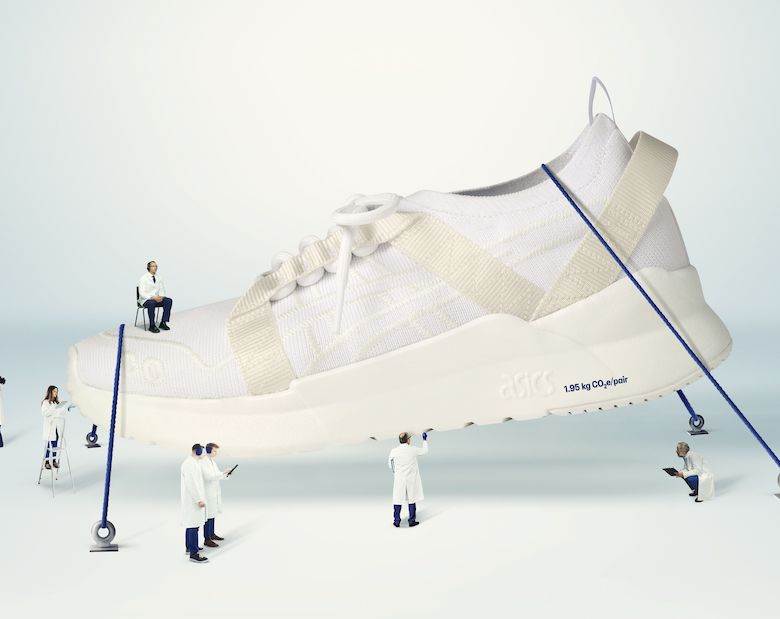Lowest carbon footprint shoe claim from ASICS

Japanese athletic footwear brand ASICS has said a new sneaker, the Gel-Lyte III CM 1.95, has a lower carbon footprint than any other sports shoe on the market.
It has measured the environmental impact of the product at 1.95 kilos of CO2-equivalent (CO2e), insisting this is significantly lower than the lowest levels available in the market at the moment. ASICS has based this assertion on available industry data up to September 2022.
The company calculated the figure of 1.95 kilos of CO2e itself, but has had its assessment independently validated by research and testing group SGS in accordance with ISO14067.
It said the new shoe was the result of more than 10 years’ in-house research and development. In 2010, ASICSS partnered with the Massachusetts Institute of Technology (MIT) to find a better way to measure CO2e impact across the lifecycle of a product.
Its efforts have led to improvements at four key stages of product lifecycle: materials and manufacturing, transportation, use and end-of-life. Differences were small in some instances, the company has said, but they have combined to make a big impact.
Components in the shoe include what ASICS has described as a new carbon-negative foam in the midsole and sock-liner. The foam incorporates a material made from a bio-based polymer called Septon Bio-series, which is derived partially from sugarcane, and is manufactured by Japan-based materials developer Kuraray.
The senior general manager of the sustainability division at ASICS, Minako Yoshikawa, said the company had long been committed to finding ways of reducing its impact on the planet, adding: “While Gel-Lyte III CM 1.95 is a hugely significant milestone on this journey, this is only the beginning. Our ambition now is to continue applying the learnings and build on the blueprint of this shoe in a way that can be rolled out on an even bigger scale in the future.”











